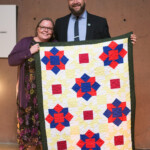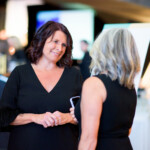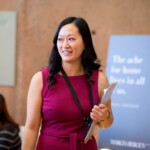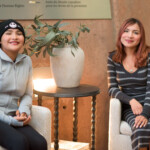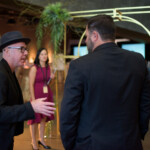Fueling Dreams: How One Experience Can Transform Lives

For Jordan Schwartz, LiveDifferent Builds weren’t just trips—they were life-changing milestones that shaped his perspective and purpose. His journey began in high school when he joined his first Build in the Dominican Republic.
“The first build that I went on was to the Dominican Republic, in between when I was in grade 11 going into grade 12. I did that as part of a school trip with Seycove Secondary, which has been doing trips with LiveDifferent for over a decade. It started in our social justice class, and my brother had done one of the first trips with what was called Hero Holiday before LiveDifferent Builds. He’d had an awesome experience, and I wanted to go through that too.”
For Jordan, it was more than just a trip with friends. “What motivated me to do my first Build with LiveDifferent was partially the opportunity to experience something with a group of friends I was very close with. We were all interested in travelling, seeing new cultures, and having new experiences in a completely different part of the world. But separate from that, I was also becoming more interested in how to make more of an impact within the community.”
The trip itself left an indelible mark.
“The culture shock was something that impacted us all fairly immediately. But as we started to spend more time with the people and the families we were working with, we realized just how happy they were and how much their values were the same as ours—around family, friends, and spending time in your community. It was actually way easier to connect with those people than I ever possibly could have imagined.”
Building lifelong skills and connections
The Build trip not only reshaped Jordan’s worldview but also equipped him with tangible skills and life lessons.
“When I think about the work that we did—installing a swing set, pouring a new basketball court, and supporting a house build—every day we were faced with a new set of challenges. You didn’t necessarily have a set role going into it. You had to find your way to add value, bring your unique skill set, and collaborate to get the job done. Above all, the group of friends I went on that trip with are still my closest group of friends over a decade later.”
These experiences influenced his career and commitment to giving back.
“The early experiences I had with LiveDifferent really opened my eyes to what it’s like to work with an organization focused on social impact. That actually helped me early in my career when I was making decisions about what types of customers I wanted to work with. I ended up working in a practice focused on nonprofits for over three years. Having been a volunteer and someone who had a transformational experience, I brought that perspective into my work.”
Investing in youth
Jordan’s connection to LiveDifferent has grown over the years, from being a volunteer to now supporting the Youth Impact Fund as a donor.
“I remember being a student and looking at this opportunity but thinking it was maybe out of reach financially. There’s so much transformative impact in an experience like this. It’s such a huge return on investment to help youth get started in their fundraising journey. By giving them just a little support to get off that $0 mark, it can make a huge impact—not just on that individual but on the group they bring along with them.”
For Jordan, LiveDifferent’s approach to inspiring youth is what sets it apart.
“LiveDifferent has always focused on creating that spark within youth to pursue social impact as part of their lives. That’s a way more sustainable way to approach systemic change than just looking for shiny stats to put in a press release.”
Join the movement
This holiday season, you can help fuel dreams for youth like Jordan by supporting the Youth Impact Fund. Every $25 donation not only supports students in reaching their goals but also enters you into a draw for a round-trip flight for two with WestJet.
Donate now
Your support can create a ripple effect of change that starts with youth and extends to communities around the world. Let’s fuel dreams together.
